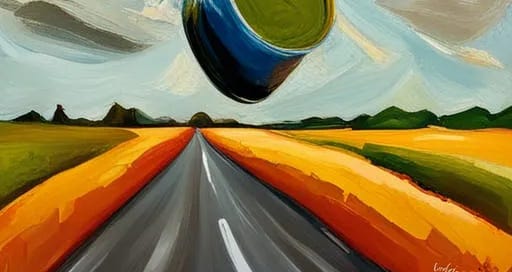Why Centreism Cannot Save Us
The common cry of "let's meet in the middle" has left muddled thinking, a lack of responsibility and a dearth of answers. The left, right and centre are all out of answers.
This was written in reply to the Ivy Exile’s post on Renegade Centrism, which is well worth a read. One of the things I love about Substack is how I can read and engage with writers like him, who have different perspectives. Substack is mercifully free of the drama that other platforms seem to stoke which leads to everyone living their own echo chamber. I’d originally intended this as a comment, but felt five pargraphs as a note or comment was pushing it slightly!
I'm very much on a different political tack to this, and centrism fills me with dread thanks to the triangulation of the 90s. The rush to pick a middle way destroyed any concept of voter choice or meaningful change. It might be a fine choice if we're happy, safe and prosperous and our biggest division is between a 20% sales tax and a 22% sales tax. With the division and challenges we currently face, a political movement of highly limited, electorally safe and rather un-creative policy is an episode for disaster. In many ways, the politics of the European baby boomers is generally very centreist, and younger people feel that decades of following a mix'n'match, tinkering, approach has done nothing to fix anything and simply kicked the can down the road.
I often think the our current political arena hasp icked the worst from left and right in contemporary politics - the GDP obsession, “rich get richer” plans and homo economicus arguments of the right with the witch hunts, ever moving goalposts and identity politics of the left. A better blend; say the right's defence of personal liberty and the small state with the left's focus on improving living conditions for ordinary people, would make more sense. I just don't see it happening, and if it does, it will instantly be tarred with the brush of "populism" as a way of discrediting it.
Another apect of the centre which puts me off is that it's the haunt of the careerist politician. Saying one thing whilst believing another is par for the course, and it's easy to see where distrust of the permanent state comes from when politicians of all stripes have more loyalty to continuing the status quo and their gravy train than any real change. It's easy to see when hawkish politicians on either side of the aisle are keen to send endless money and other people's sons to die at the slightest provocation.
Fundamentally though, the popular sense of right and left both come down to materialist world views. That's not a way of looking at the world which I think has much left to recommend it. Things can certainly be better used or allocated, but materialism isn't something which is the foundation of any ideology which is useful for the world now. Indeed, one of our great challenges is not using things at all - the truest green policy isn’t electric cars, recycling plastic or buying clothes made from re-purposed nylon; it’s finding ways not to create or need these things in the first place.
My personal journey has moved away from the left/centre/right analogy and more into the box marked "other". It’s a dilemma which many writers and thinkers seem to be engaging with now.





The centre cannot hold. Ever since time culture war of tje late 60s, Western politics invariably followed the same unimaginative and ineffective formula of meeting between the opinion of left-wing TV producers and slightly less left wing newspaper editors. And it has been an utter disaster.
We have lost grounding, resilience and a sense of belonging.
Let's not meet in the middle anymore.
The "centre" means the consensus of the spectrum of "respectable" opinion in a liberal democratic society. Whatever the mainstream right and the mainstream left agree upon is undoubtedly bad.